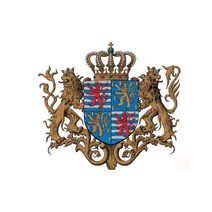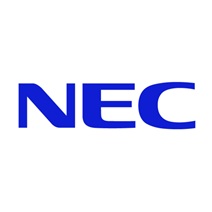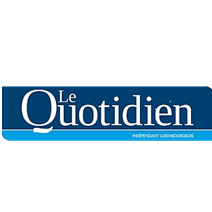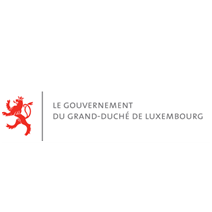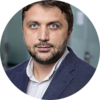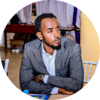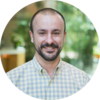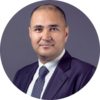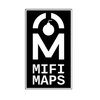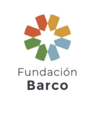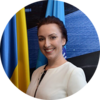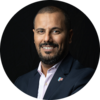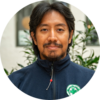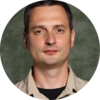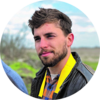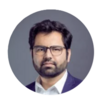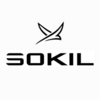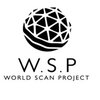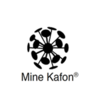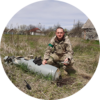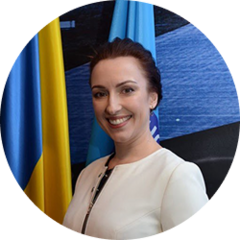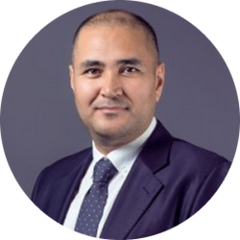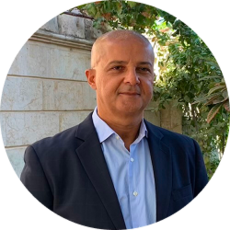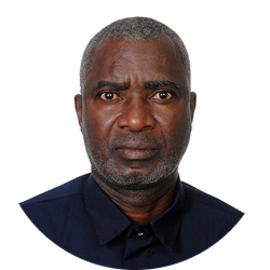The GICHD Innovation Conference 2025 has successfully concluded, bringing together experts dedicated to reducing the risks posed by landmines, cluster munitions, and other explosive ordnance that continue to endanger more than 75 million people worldwide. Over three days, participants collaborated across sectors to tackle pressing challenges, identify practical solutions, and exchange best practices that drive innovation in mine action and ammunition management.
The conference highlighted how innovation can meaningfully address explosive ordnance risks—through problem-oriented discussions, new methodologies, and forward-thinking approaches—rather than simply showcasing emerging technologies.

When: 28–30 October 2025
Where: LUXEXPO THE BOX, Luxembourg-Kirchberg
Format: In-person
Note: Registration for the event is now closed.
Logistic note and Innovation Conference photos
Innovation Conference photos
Click here to browse a limited number of photos available for download. Please ensure any use on social media is credited to ©GICHD/PANCAKE! photographie. These will be uploaded at the end of each day.
Logistic note for participants
Click here to access our logistic note for participants, where you will find practical information to assist with your arrival.
Conference Programme
Conference Programme Available for Download
DAY 1 – 28 October
08:30 - 9:45
Registration
10:00 - 10:45
Opening Remarks:
- H.E. Mr. Xavier Bettel, Deputy Prime Minister; Minister for Foreign Affairs and Foreign Trade; Minister for Development Cooperation and Humanitarian Affairs of Luxembourg
- Ambassador Tobias Privitelli, Director of the Geneva International Centre for Humanitarian Demining (GICHD)
- HRH Prince Mired bin Ra'ad of Jordan
- Ambassador Benno Laggner, Ambassador of Switzerland to the Grand Duchy of Luxembourg
Setting the Stage:
Armen Harutyunyan, Head of Research, Innovation, Standards, and Operations, the GICHD
Master of Ceremonies:
- Alain Nellen, Advisor, Research and Innovation, the Geneva International Centre for Humanitarian Demining
- Kinda Samra, Project Coordinator, Research and Innovation, the Geneva International Centre for Humanitarian Demining
10:45 - 11:15
Coffee Break / Exhibiton
11:15 - 13:00
Plenary 1 - Financing Innovation: New Paths, Smart Models
Explores how limited and fragmented funding hinders innovation in mine action and aims to identify strategies for developing flexible, stage-appropriate funding models that support cost-effective innovation across the entire lifecycle, drawing lessons from the broader humanitarian sector.

Pedro Basto
Programme Manager, Research and Innovation, the Geneva International Centre for Humanitarian Demining
Speakers:


Innovation Project Manager, Humanity & Inclusion

Maria Carolina Romero
Early Stage Investing Expert

Ruth Salmon
Senior Innovation Manager, Humanitarian Innovation Fund - Elrha

Patricia Loh
Innovation Scaling Senior Analyst, UN Global Pulse
13:00 - 14:00
Lunch
14:00 - 15:30
The GICHD Innovation Award Ceremony
Room: Plenary
The GICHD Innovation Award 2025 recognises outstanding ideas that advance mine action. Focusing on two problem statements: improving the accuracy of estimating explosive ordnance hazardous areas and quantifying residual risk in land release, the award highlights innovative solutions. The winner of each problem statement, selected by an independent panel of experts, presented their work during the Innovation Award Ceremony. More details are available on the award’s dedicated webpage.
Moderator: Alain Nellen, Adviser, Research, Innovation, Standards and Operations, the GICHD
Handed the Awards:
- HRH Prince Mired bin Ra’ad of Jordan
- Ambassador Tobias Privitelli, Director of the GICHD
The Award winners:
Award 1: Improving the Accuracy of Estimating EO Hazardous Areas
- Winner consortium: Japan International Cooperation Agency, Cambodian Mine Action Centre, and NEC Laboratories Europe GmbH
- Project: Exploring AI-Assisted Survey for Humanitarian Mine Action: A Pilot Study in Cambodia
- This pilot explores how artificial intelligence and satellite imagery can support survey teams in identifying hazardous areas more precisely, helping to save time, reduce costs, and increase safety.
Award 2: Quantifying Residual Risk in Land Release
- Winner consortium: EODynamics AB and Matthew Hartung
- Project: Applying the FAIR Model to Quantify Residual Risk in Humanitarian Land Release
- This approach adapts the FAIR model — a widely used risk-quantification framework — to help practitioners better estimate and communicate residual risk after clearance operations.
The winning submissions received a CHF 4,000 prize and presented their work on 28 October 2025 in Luxembourg.
15:30 - 15:45
Coffee Break / Exhibition
15:45 – 17:30
Plenary 2 - Mechanical Land Release: Monitoring Efficiency, Evaluating Impact
Examines the logistical, regulatory, and technological challenges of deploying and sustaining mechanical assets, with a particular focus on Ukraine, exploring innovative models like rentals, autonomous systems, and adapted equipment to improve efficiency, cost-effectiveness, and national testing and accreditation processes.
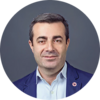
Yuri Shahramanyan
Advisor, Standards and Operations, the Geneva International Centre for Humanitarian Demining
Speakers:

Michael Nevard
Director of Transformation, the HALO Trust

Subeije Kalo
Sales Director for the GCC area, DOK-ING Ltd.
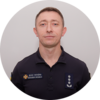
Mykola Didyk
Head of the Humanitarian Demining and Quality Control Division, the Mine Action Department at the State Emergency Service of Ukraine (SESU)

Tiphaine Lucas
Head of Mine Action and Land Rehabilitation, the Food and Agriculture Organization (FAO)
17:30 - 20:00
- Exhibition 17:30 - 18:00
- Reception 18:00 - 20:00
Speakers
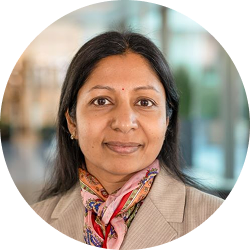
Lakshmi Supriya
Patent Analytics Officer
World Intellectual Property Organization
Lakshmi is a Patent Analytics Officer at WIPO, responsible for patent analytics initiatives, mentoring and training programs. Her unique approach to IP and innovation draws from her wide experience as an inventor with multiple patents, Indian Patent Agent drafting/prosecuting patents, and a science journalist published in Scientific American and New Scientist. With a PhD in Polymer Science and Engineering from Virginia Tech (USA) and over 20 years of R&D leadership at companies like Intel, Saint Gobain, and startups across the USA and India, she brings unparalleled depth to patent analysis.
She leverages this diverse background to translate complex patent data into simple narratives through visual and written storytelling that has made global impact. A strong advocate for women in science and engineering, her work has been recognized with several awards including the 2019 Asian Scientist Writing Prize and the 2024 Young Alumni Achiever Award from her alma mater IIT Kharagpur (India).
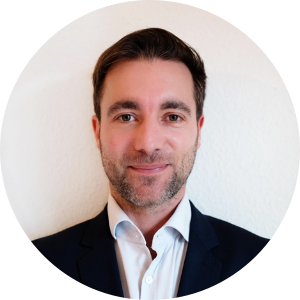
Mr. Hardy Giezendanner
Senior Researcher, Conventional Arms and Ammunition Programme
United Nations Institute for Disarmament Research (UNIDIR)
Hardy Giezendanner is a Senior Researcher for UNIDIR’s Conventional Arms and Ammunition Programme, where he coordinates the research pillar on weapons and ammunition management, the regulation of the arms trade and preventing diversion and illicit proliferation of weapons, systems and components. This also includes the provision of advice, support, tools, and capacity-building with regional organizations, States, UN, and non-governmental expert organization partners. Hardy has authored, co-authored, or contributed to numerous publications on conventional arms control. He previously worked for MONUSCO in the DRC, the UN Mine Action Service, Geneva Call and the Swiss Federal Department for Foreign Affairs. He holds a master’s degree in International Relations, Peace and Security Studies from the Institute for International Studies in Barcelona.
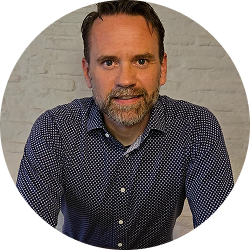
Michael Tjalve
Founder
Humanitarian AI Advisory
Michael Tjalve brings over two decades of experience with AI, spanning applied science, research, and tech sector AI development, most recently as Chief AI Architect at Microsoft Philanthropies, helping humanitarian organizations leverage AI to amplify their impact. In 2024, he left the tech sector to launch Humanitarian AI Advisory, supporting humanitarian organizations in harnessing the potential of AI while navigating its pitfalls. Michael holds a PhD in AI from University College London and is Assistant Professor at University of Washington, where he teaches AI in the humanitarian sector. Michael serves as Board Chair for Spreeha Foundation, advancing healthcare access in underserved communities in Bangladesh. Michael is Senior Advisor to the UN on AI in humanitarian action and co-leads the SAFE AI initiative promoting responsible use of AI in humanitarian action. Michael recently co-founded the RootsAI Foundation, a nonprofit focused on expanding access to AI for underrepresented languages and communities.
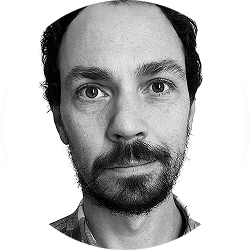
Clément Meynier
Global Partnerships Advisor
Mines Advisory Group (MAG)
Clément Meynier is Global Partnerships Advisor at Mines Advisory Group (MAG). He has over fifteen years of experience in the humanitarian and development sector, with a focus on programme management and strategic partnerships. Before taking up his current role, he served as MAG’s Regional Manager for the Sahel and West Africa and as Country Director in Bosnia and Herzegovina. Prior to joining MAG in 2019, Clément worked with Humanity & Inclusion and the Danish Refugee Council in Morocco, Tajikistan, Kyrgyzstan, Libya, Myanmar, Nigeria, and across the Sahel.
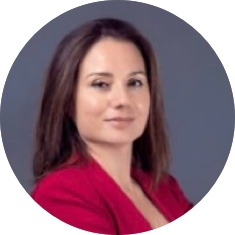
Ms. Jovana Carapic
Head of the Ammunition Management Advisory Team
The Geneva International Centre for Humanitarian Demining
Jovana Carapic joined the GICHD in June 2019 and currently serves as Head of the Ammunition Management Advisory Team (AMAT). She provides strategic leadership to the division, which forms part of the GICHD’s comprehensive approach to explosive ordnance risk reduction (EORR), alongside humanitarian mine action. AMAT contributes to reducing risks stemming from unsafely and insecurely managed conventional ammunition stockpiles by supporting national authorities, UN agencies, and international partners in strengthening technical, operational, and institutional capacities for safe, secure, and sustainable ammunition management. Under her leadership, AMAT also supports the United Nations Office for Disarmament Affairs (UNODA) through its contribution to the UN SaferGuard Programme, including the development and implementation of international norms and standards such as the International Ammunition Technical Guidelines (IATG) and the Global Framework for Through-Life Conventional Ammunition Management.
Prior to her appointment as Head of Division, Jovana served as Programme Manager with AMAT, where she contributed in implementing the division’s multi-year strategy and managing the Support to UN SaferGuard Programme and AMAT Assistance to States in Eastern Europe Programme. Before joining the GICHD, Jovana was a researcher at the Geneva-based Small Arms Survey, where she focused on weapons and ammunition management in South-east Europe. She has authored numerous publications on ammunition life-cycle management, unplanned explosions at munitions sites (UEMS), and training and capacity development in physical security and stockpile management (PSSM).
Jovana holds a PhD in Political Science from the Geneva Graduate Institute of International and Development Studies. Her doctoral research examined the relationships between states and armed groups, with fieldwork conducted in Nepal, Serbia and Timor Leste. Since then, her work has taken her to conflict-affected settings across Africa, Asia, Latin America, Eastern Europe and the Balkans.

Dominic Williams
Founder and Chief Scientist
The DFINITY Foundation
Dominic Williams is the Founder and Chief Scientist of the DFINITY Foundation. Over the past 20 years, Dominic has had a distinguished career as a serial tech entrepreneur and cryptographic theoretician focused on the internet and distributed systems. His key scientific discoveries, such as Threshold Relay and PSC chains, Validation Towers and Trees, USCIDs, and The 3 E's of Sybil Resistance, have pioneered new approaches to cryptography and distributed systems technology. His previous ventures include a massively multiplayer online (MMO) game that gained popularity with millions of users.
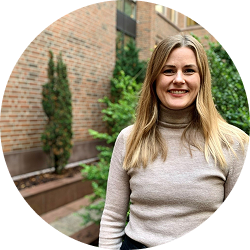
Ms Emilie Skogvang
Senior Advisor, Humanitarian Innovation Programme
Innovation Norway
Emilie Skogvang is a Senior Advisor at Innovation Norway’s Humanitarian Innovation Programme, Norway’s flagship initiative for advancing innovation in the humanitarian sector. Since joining the Programme in 2019, she has played a central role in building and supporting partnerships between humanitarian actors and the private sector.
Prior to her current role, she worked with humanitarian-private sector collaboration through the Norwegian Emergency Preparedness System (NOREPS) and the UN Women Innovation Unit, where she contributed to developing innovative approaches to humanitarian and development challenges. She has also worked with the environmental foundation ZERO and holds a Master’s Degree in Technology and Innovation from the University of Oslo.
In a field where the stakes are high and the challenges complex, Emilie sees trust-based partnerships as essential to co-creating sustainable, scalable solutions that can meet both current and future humanitarian needs.
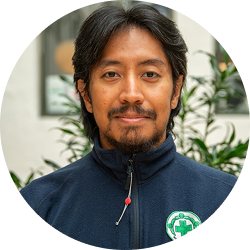
Kyaw Lin Htut
Senior Advisor for Innovation
Norwegian People’s Aid
Kyaw Lin Htut is the Senior Advisor for Innovation at Norwegian People’s Aid. He holds a Master’s degree in Economics and IMAS EOD3+ qualifications. He has seventeen years of experience in the humanitarian sector, including twelve years in the Mine Action sector with a focus on managing Land Release operations and R&D. He has worked on Mine Action programmes in Cambodia, Armenia, Georgia, Myanmar, Ukraine and Kosovo.
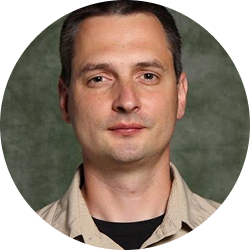
Dr. Alex Nikulin
Associate Professor and Chair of the Department of Earth Sciences
Binghamton University
Dr. Alex Nikulin is an Associate Professor and Chair of the Department of Earth Sciences at Binghamton University, a research campus of State University of New York. His research focuses on the broad field of humanitarian and environmental geophysics, with a focus on the emerging field of automated geophysical surveying. He has led the transition of ultra-low-altitude UAV aeromagnetic surveys from the realm of academic research to humanitarian geophysics field operations, including early integration into land release work in Ukraine, Cambodia, and the Philippines. Professor Nikulin is a co-founder of the Geophysics and Remote Sensing Research Laboratory at Binghamton University, a collaborative academic platform that brings together undergraduate and graduate researchers, faculty from multiple academic departments, as well as multiple industry, academic, government, and NGO partners, to work on resolving critical issues facing society through innovative applications of geophysical techniques.
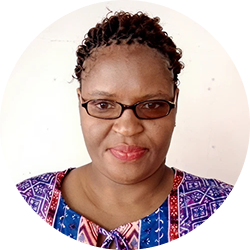
Felicity Nyaradzo Mangwende
Social Worker, Ministry of Public Service, Labour and Social Welfare
Felicity Nyaradzo Mangwende is a Social Worker at the Ministry of Public Service, Labour and Social Welfare, Zimbabwe. She holds a BSc in Psychology (University of Zimbabwe), a Postgraduate Diploma in Social Work (Women’s University in Africa), and a Master’s in Social Work (Midlands State University).
Felicity has participated in various professional programs, including Program Management on Empowerment of Persons with Disabilities (NIESBUD, India, 2014), Social Participation of Persons with Disabilities (JICA, Japan, 2020), and Social Protection for Disabilities (Boon University, Germany, 2023).
Her work focuses on advocating for access to durable prosthetics for landmine survivors, aiming to reduce stigma and improve mobility. She has contributed to the Zimbabwe National Disability Policy and the Persons with Disabilities Bill (2021). Felicity promotes positive policy changes and innovation to improve the lives of survivors, emphasizing the importance of affordable, culturally appropriate prosthetics.
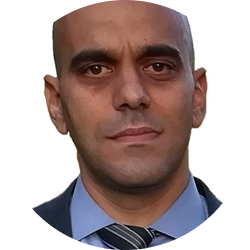
Colonel Charbel Njeim
Head of Operations
Lebanon Mine Action Center
Army Officer specializing in combat engineering with over 22 years of experience in HMA. He has held various leadership roles, including Battalion Commander, Engineer Company Commander, Operations Officer, and QA Officer, and also served as Chief of the Regional Mine Action Center at LMAC. Since July 2023, he has been leading LMAC’s Operations Section, overseeing land release, and coordination with international and local partners.
His professional development includes advanced training in explosive ordnance disposal (EOD level 3), quality management and operational efficiency in land release. He has participated in numerous national and international workshops and conferences, contributing to the advancement of operational standards. He has also played a key role in supporting Lebanon’s commitments under international Convention and in strengthening partnerships with the UN, NGOs, and donors.
He holds a Master’s degree in International Relations and a Master’s degree in Military Sciences from the Lebanese University.
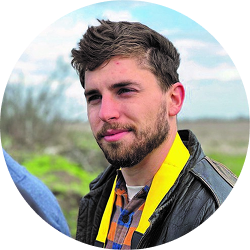
Dr. Jasper Baur
Co-founder and Lead Scientist
Safe Pro AI
Dr. Jasper Baur is the Co-founder and Lead Scientist at Safe Pro AI and President of the nonprofit Demining Research Community. At Safe Pro AI, he co-leads development of SpotlightAI, a drone-based imagery analysis and mapping platform that has detected over 35,000 landmines and UXO as of September 2025. Through the Demining Research Community, he directs the seeded field project and benchmarks emerging remote sensing technologies for humanitarian mine action. Baur earned his PhD from Columbia University in 2025, specializing in UAV-based remote sensing and computer vision for landmine detection. His mission is to innovate technology in humanitarian mine action to safelty return land to affected communities.

Patricia Loh
Innovation Scaling Senior Analyst
UN Global Pulse
Patricia Loh is the Innovation Scaling Senior Analyst at UN Global Pulse, which is the UN Secretary-General’s Innovation Lab. In this capacity, she has conducted a UN System-wide scoping exercise which resulted in the Scaling the Summit report, which outlines recommendations on how to bridge the gaps for proven, piloted UN-led innovations to transition to scale for impact. Based on the report’s recommendations, her team leads the UN Global Pulse Accelerator Programme, an initiative designed to equip UN teams working on innovations with the essential know-how to navigate the complexities of scaling and drive urgent, meaningful change for people and planet. Patricia also coordinates the mentoring of the UN Global Pulse Accelerator Programme grant recipient teams to ensure they receive tailored multidisciplinary support to implement their strategies.
Before joining UN Global Pulse, Patricia worked as a clinician and later transitioned into the broader fields of health systems and development. She holds Master’s degrees in Health and Medical Law, and in Global Health and Development. Her interdisciplinary background bridges frontline experience, policy insight, and innovation strategy — equipping her to navigate the complex pathway from promising ideas to sustainable impact.
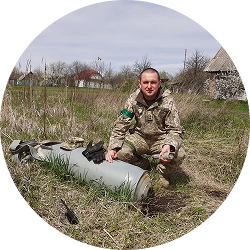
Mykhailo Konopelniuk
Head of the Diving Operations Department, Support Directorate, State Special Transport Service of Ukraine
Colonel Mykhailo Konopelniuk is Head of the Diving Operations Department, Support Directorate, State Special Transport Service of Ukraine. He has been involved in mine action since 2016. Between 2016 and 2022, he participated in the clearance of explosive remnants of war from the First and Second World Wars at infrastructure facilities, organized and conducted demining operations in Donetsk and Luhansk regions, and contributed to eliminating the consequences of emergencies at ammunition depots of the Armed Forces of Ukraine. From March to June 2022, he took direct part in demining operations in Kyiv and Chernihiv regions. From June 2022 to July 2025, Colonel Konopelniuk was involved in organizing and coordinating humanitarian demining operations in the de-occupied territories of Ukraine. Since July 2025, he has headed the Diving Division of the State Special Transport Service of Ukraine.
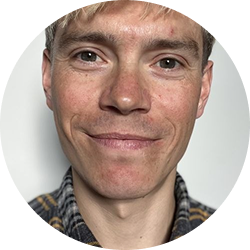
Dan Haddow
Global Training Manager
The HALO Trust
Dan Haddow is the Global Training Manager for The HALO Trust. Born and educated in Scotland, Dan spent his twenties living and working in Colombia, where he first witnessed the impact of conflict and landmines on society. Inspired by this experience, he left his role as an English teacher in Bogotá to join The HALO Trust in 2016. Since then, he has managed clearance operations in Colombia, Sri Lanka, Angola, and Cambodia, and has visited many other landmine-affected countries where HALO operates.
In his current role, Dan combines his passion for education with mine clearance. He regularly travels the world to deliver in-person training, helping his colleagues develop skills and advance their careers in mine action. He also leads the development of HALO’s global training portfolio, including the Field Officer Course, which has been credit-rated at Level 9 on the Scottish Credit and Qualifications Framework (SCQF)—equivalent to one year of undergraduate study.
Dan holds a master's degree in Human Rights Law from the University of Edinburgh.
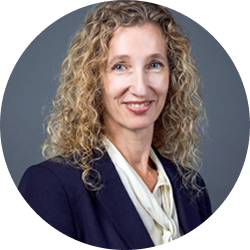
Greta Zeender
Head of the External Relations, Policy Research and Cooperation Programme Division
The Geneva International Centre for Humanitarian Demining
Greta Zeender joined the GICHD in May 2024 as Head of the External Relations, Policy Research and Cooperation Programme Division, where she also oversees the GICHD's support to relevant international instruments and multilateral policy processes. She is also responsible for communications and outreach and governance issues (Council of Foundation, Advisory Board). The Division also hosts the International Mine Action Standards (IMAS) Secretariat.
Prior to joining GICHD, Greta worked for 12 years with the United Nations, her latest post as Chief of Staff/Senior Policy Adviser to the Special Adviser of the UN Secretary-General (SG) on Solutions to Internal Displacement. At the UN, she also worked as Head of Research with the Secretariat of the SG’s High-Level Panel on Internal Displacement and with the UN Office for the Coordination of Humanitarian Affairs, where she undertook extended missions to affected countries in Africa, Asia, Latin America, Middle East and Eastern Europe to provide policy and programmatic advice to Humanitarian Coordinators/Humanitarian Country Teams.
Prior to the UN, she worked with the Norwegian Refugee Council, including in Central Africa, and with the Swiss Development Cooperation, at Headquarters and in Romania. She was also Vice-Chair of the Advisory Board of the NGO coalition Watchlist on Children and Armed Conflict and has published numerous articles on forced displacement.
Greta holds a Master’s Degree from the Fletcher School of Law and Diplomacy in Boston, United States, and a BA in International Relations from the Graduate Institute of International and Development Studies in Geneva, Switzerland.
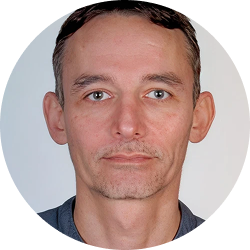
Henri Bonnin
Senior Programme Manager
ATscale
Henri is an occupational therapist with more than 20 years of professional experience, including 13 years in humanitarian contexts.
Before joining ATscale, he worked in France for health and social services dedicated to persons with various types of impairment and specialised in assistive technology. He began his humanitarian career in 2010 after the earthquake in Haïti, and has since worked in different regions of the world (Africa, Middle East, Pacific). He specializes in assistance to persons with injuries and disabilities affected by natural disasters and/or armed conflicts. In 2019, he joined UNOPS and UNMAS to develop victim assistance programmes in Syria and Nigeria. In 2024, he started as programme manager at ATscale in Geneva, the global Partnership for Assistive Technology, and oversees programmes related to access to assistive technology in low- and middle-income countries, with a focus on wheelchairs and prostheses."
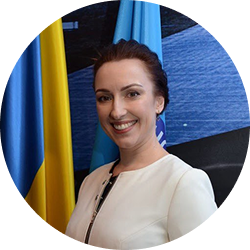
Dr. Oksana Vovk
Director of the Educational and Research Institute of Energy Saving and Energy Management
The National Technical University of Ukraine “Igor Sikorsky Kyiv Polytechnic Institute”
Dr. Oksana Vovk is Director of the Educational and Research Institute of Energy Saving and Energy Management at the National Technical University of Ukraine “Igor Sikorsky Kyiv Polytechnic Institute”. She also co-leads the Center for Innovative Technologies in Humanitarian Demining, which promotes research, education, and technology transfer in mine action. Dr. Vovk has extensive experience in engineering education, sustainable energy systems, and innovation management. She is currently coordinating projects focused on integrating advanced technologies, such as virtual reality, into mine safety education for students and schoolchildren. Her work aims to foster collaboration between academia, industry, and humanitarian partners to support innovation and capacity building in Ukraine’s demining sector.
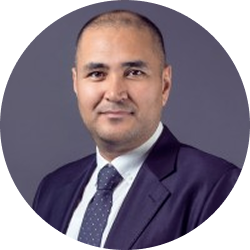
Firoz Alizada
Implementation Support Officer, Anti-Personnel Mine Ban Convention’s Implementation Support Unit
Firoz Alizada works at the Anti-Personnel Mine Ban Convention’s Implementation Support Unit (ISU) in Geneva, where he supports States Parties and the Committee on Victim Assistance in implementing the victim assistance provisions of the Anti-Personnel Mine Ban Convention.
With over twenty years of experience in victim assistance, disability rights, and humanitarian disarmament, Firoz has worked with organizations including the International Campaign to Ban Landmines (ICBL), UN Mine Action Services (UNMAS), Humanity & Inclusion (HI), the International Committee of the Red Cross (ICRC), and local survivors’ networks in Afghanistan.
Firoz holds an executive Master’s in Development Policy and Practice from the Graduate Institute of International and Development Studies in Geneva and has been honoured with the Rotary ‘Service Above Self’ Award for his contributions to the field.
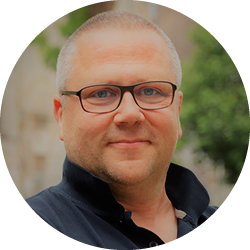
Christophe Van Geel
Rehabilitation Global Specialist, Humanity & Inclusion
Christophe is a physiotherapist and certified prosthetist and orthotist (P&O) from Belgium. He began his journey with Handicap International in 1994 as a field trainer. He now works at the organization’s headquarters in Brussels as a rehabilitation specialist and focal point for assistive technology, particularly wheelchairs. His work primarily involves providing direct support to field teams and developing internal reference documents and tools.
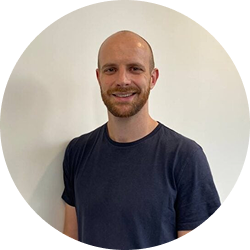
Torsten Frey
Scientific Researcher, GEOMAR Helmholtz Centre for Ocean Research Kiel, DeepSea Monitoring Group
Torsten Frey has been working on munitions in the sea since 2016. His research focuses on decision problems regarding the detection and clearance of submerged munitions. He uses transdisciplinary stakeholder-driven methods to address quality and risk management challenges in the field. Since 2019, he has been working at GEOMAR Helmholtz Centre for Ocean Research Kiel, Germany, where he partook in numerous research projects (i.a. BASTA, ProBaNNt, CONMAR, and BorDEx), some of which are ongoing.
In his doctoral thesis he developed a tool for risk assessment during offshore explosive ordnance disposal. Torsten holds degrees in international business management and in environmental studies. He is the author of the Quality Guideline of Offshore Explosive Ordnance Disposal and numerous articles that deal with the issue of munitions in the sea (ORCID: 0000-0003-0834-1718). He also serves as the lead editor of the HELCOM Submerged Assessment on warfare materials in the Baltic Sea.

Xavier Depreytere
Innovation Project Manager
Humanity & Inclusion
Xavier Depreytere joined Handicap International/Humanity & Inclusion in 2018 as an Innovation Project Manager. He has led the design and strategic development of the Odyssey2025 project, which aims to deploy small drones and GIS tools to facilitate and accelerate land release operations. Within this initiative, he supervised the implementation of trials in real-world scenarios in over 300 hazardous areas, spanning regions such as Chad, Lebanon, Iraq, North-East Syria, and Ukraine. These trials have resulted in numerous breakthroughs for the Humanitarian Mine Action sector, resulting in the finding of more than 10,000 landmines and other explosive remnants of war. Xavier holds a master's degree in biosystems engineering from the University of Mons, Belgium.
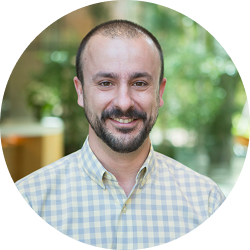
Salim Sawaya
Manager
Esri's Nonprofit and Global Organizations team
Salim Sawaya is a Manager on Esri's Nonprofit and Global Organizations team supporting the UN and other international organizations working in the areas of Sustainable Development, Humanitarian Assistance, and Global Health among others. Having worked at Esri in Washington, DC for the past 20 years, Salim and his team support Esri’s customers to design and implement GIS solutions that make a difference and bring value to their missions, and support the Esri GIS for Good programs and initiatives. He has 25 years of experience working in the fields of ICT and GIS in positions focused on requirements analysis, solution design, implementation planning, application development, customer support, project management, business development and marketing. He holds a MS in Geographic and Cartographic Sciences from George Mason University, 2008, and a BA in Economics and Finance from Bucknell University, 2000.
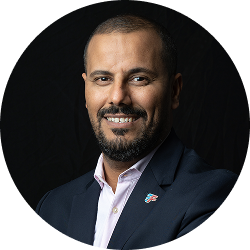
Rabie AL Jawashi
Founder
Free Fields Foundation (3F)
Rabie is the founder of Free Fields Foundation (3F), a Libyan non-profit humanitarian mine action NGO. A former Schlumberger engineer, his career shifted after the 2011 uprising when a tragic encounter with a child victim inspired his humanitarian calling. He began as a liaison for Germany's St. Barbara Foundation (SBF), then co-founded 3F in 2012.
Under his leadership, 3F has established partnerships with leading international institutions and now operates with full support from the European Union (EU) and the U.S. Government (WRA). Building on this solid foundation, 3F is expanding internationally to mentor local institutions in post-conflict zones, promoting National Ownership to build sustainable local capacity.
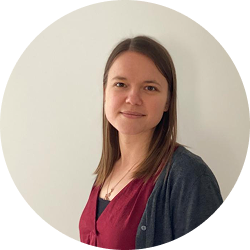
Ruth Salmon
Senior Innovation Manager
Humanitarian Innovation Fund - Elrha
As Senior Innovation Manager at Elrha, Ruth manages a number of thematic innovation portfolios within the Humanitarian Innovation Fund. For the past ten years, Ruth has been working across the development and humanitarian sectors to understand how research and innovation can improve outcomes for those affected by crisis. Before joining Elrha, Ruth worked for a non-profit consultancy designing and scaling innovative financing programmes across East and West Africa. She has also worked in monitoring and evaluation and research roles for non-profit, public and private sector actors. Ruth has an Msc in Research for International Development from University of African and Oriental Studies (London).
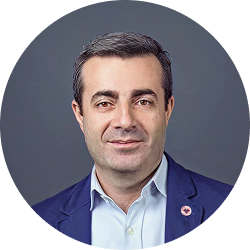
Yuri Shahramanyan
Advisor, Standards and Operations
The Geneva International Centre for Humanitarian Demining
Yuri Shahramanyan joined the GICHD in January 2020 as an Advisor, Standards and Operations. His work covers primarily quality management in mine action and research of innovative technical solutions to improve efficiency in land release processes. His role includes development and delivering of training courses that assist national mine action authorities to establish and enhance quality management systems within their structures and providing advice on survey and clearance solutions to increase their operational efficiency. In addition, Yuri Shahramanyan carries out mine action operations evaluations and provides broader mine action expertise.
Prior to joining the GICHD, Yuri Shahramanyan worked for seventeen years in mine action with The HALO Trust, managing operations and programmes in Caucasus, eastern Europe and Africa. Yuri Shahramanyan holds a degree of a Bachelor of Arts in Linguistics
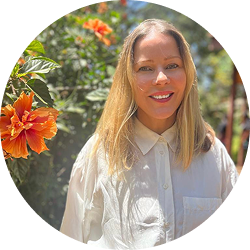
Laura Scanlon
CEO
Here I Am Studio
Since 2014, Laura Scanlon has been co-designing solutions with and for some of the world’s most vulnerable and excluded communities. With extensive experience in conflict-affected and hard-to-reach regions and a particular focus on marginalised gender groups, she has led pioneering innovation programmes for organisations including the UN, CARE, Plan International, Malala Fund, and Girl Effect.
As CEO of Here I Am Studio, Laura leads a global team using design thinking to make inclusion actionable, helping organisations reimagine how they understand and support people in complex, low-trust environments. Laura is also co-founder of Fatima, an ethical research platform enabling safe, participatory insight gathering in fragile contexts. Previously, as Senior Director at Girl Effect, she founded TEGA, a groundbreaking peer research network for young women. In 2023, she was recognised by the UK government as one of the country’s top female innovation leaders for her commitment to digital transformation and social impact.
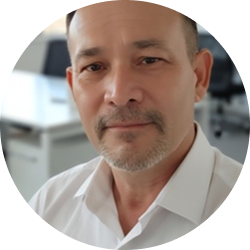
Len Austin
Cambodia Country Director, the Golden West Humanitarian Foundation
Master Sergeant (Ret.) Len Austin served 22 years in the United States Marine Corps as an Explosive Ordnance Disposal (EOD) specialist. Following his military service, he has spent over 20 years with the Golden West Humanitarian Foundation (GWHF), where he currently serves as EOD Operations Manager and Cambodia Country Manager. He also oversees the Explosive Harvesting Program (EHP) and the development of new EOD technologies.
With more than 38 years of experience in EOD and humanitarian EOD operations worldwide, Mr. Austin specializes in ammunition destruction and training, explosive and ammunition fillers, improvised explosive devices (IEDs), the disposal of unexploded ordnance (UXO) and explosive remnants of war (ERW), as well as the inerting of munitions.
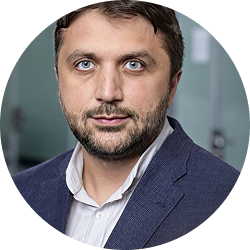
Stanislav (Stan) Damjanovic
Advisor, Standards and Operations
The Geneva International Centre for Humanitarian Demining
Stanislav (Stan) Damjanovic has been with the GICHD since September 2017 as a Standards and Operations Advisor. In this role, he plans and manages projects that help partners improve their operational efficiency and effectiveness. Stan provides expert advice on standards and operations to national authorities, the United Nations, NGOs, and other key stakeholders in the sector (and broader). He also contributes to research and development efforts and facilitates specialised training courses to enhance the skills of mine action professionals.
Prior to joining GICHD, Stan spent over ten years with The HALO Trust, overseeing operations and programmes in various countries and regions, including Somalia, Cambodia, Sri Lanka, the Central African Republic, Turkey, and Jordan (Syria response). He holds a BA in Political Science from the University of Belgrade and an MSc in Sustainable Development from the University of Sussex. Stan is an ISO 31000-certified Risk Manager and is IMAS EOD Level 3 qualified.

Subeije Kalo
Sales Director for the GCC area, DOK-ING Ltd.
DOK-ING
Subeije Kalo joined DOK-ING in May 2011 as sales and business development. With the background in mechanical engineering and due to its knowledge of middle eastern culture and Arabic language, he was tasked to develop new markets in the Middle East as his primary task, in addition to handling number of European and South American markets. In January 2013 he was promoted to sales director for entire DOK-ING sales and remained in that position until December 2019. Due to raising demand and obligation in the Middle East in December 2019 he became responsible only for GCC markets and few other markets in Middle East. Apart from his role in sales and business development, he had a role in developing new products. That role was mainly concentrated in transferring the exact client needs, requirements and issues that need to be solved to the engineering team in DOK-ING. Working with the engineers to provide the best possible solution to the end user. Throughout 14 years in DOK-ING he managed to place mechanical demining assets in several South American countries as well as countries in Europe. Middle East remained his main focus, thus he managed to place over 70 mechanical demining assets in Middle Eastern markets, making it second largest DOK-ING market after USA. His role didn’t stop only at deploying the equipment, through national programs and in cooperation with DOK-ING, he managed to localize a lot of knowledge in local assets, training, maintenance and other practical knowledge that will enhance local capacities in managing mechanical demining assets at hand. In addition to already mentioned knowledge transfer to local assets, he worked on general land mine problem awareness through organizing workshop to transfer Croatian land mine experience to countries that are still new in this global issue, trying to help them start foundation of their own national mine action centers.
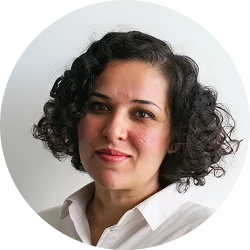
Radwa Rabie
Advisor, Research and Innovation
The Geneva International Centre for Humanitarian Demining
Radwa Rabie joined the GICHD in 2019 and holds the position of Advisor in the Research and Innovation (R&I) Programme since Jun 2025. In her role, she supports mine action partners in exploring innovative solutions and addressing challenges related to Explosive Ordnance Risk Reduction, building on her previous roles within the GICHD in overseeing and supporting activities to enhance the development and outreach of the International Mine Action Standards (IMAS) and National Mine Action standards (NMAS).
Prior to the GICHD, Radwa lead mine action and armed violence reduction programmes in fragile contexts in Libya, Tunisia, and Afghanistan with the Danish Refugee Council (2013–2018), and in the Middle East with the Mines Advisory Group (2018). Her previous work for CARE International, Catholic Relief Services and the UN-Habitat centered around humanitarian response, capacity development and protection.
She holds a joint MA in Sociology from the University of Freiburg (Germany) and the University of KwaZulu-Natal (South Africa), and a BSc in Political Science and Economics from Cairo University (Egypt), and is IMAS EOD Level 2 qualified.
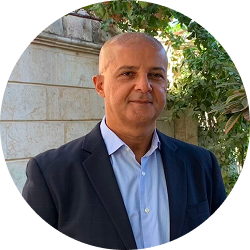
Fady Chahine
Land Release Officer
Handicap International
Fady Chahine is a Land Release Officer with extensive experience in Humanitarian Mine Action, specializing in land release, EOD/C-IED, and underwater EOD operations. A former Military Engineer Officer, he has led and managed clearance teams across Lebanon and Northeast Syria, ensuring compliance with IMAS standards and national regulations. He has worked with Handicap International and collaborated with national authorities such as LMAC and NESMAC, and international partners including UNMAS and UNIFIL. Fady holds an MBA in Project Management from Cardiff Metropolitan University (UK) and international certifications in EOD from the U.S. Naval EOD School and Underwater EOD from the UK Defence EOD School.
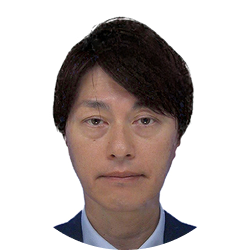
Kentaro Imai
CEO
IOS
Kentaro is the CEO of IOS, a Japanese company dedicated to the robotization of demanding outdoor operations.
He co-founded IOS in 2016, and in 2017, after visiting a Cambodian minefield for the first time, he was requested by the Cambodian Mine Action Centre (CMAC) to develop a robotic solution to replace manual prodding and excavation.
This request led to the creation of the Demining Robot (DMR). After five years of development and close collaboration with CMAC through repeated prototype demonstrations, the DMR entered operational use in 2022.
Over the following two years, the DMR was deployed across multiple minefields under diverse environmental conditions, providing data and practical experience. In 2024, the technology culminated in CMAC’s official certification.
The DMR is remotely operated and uses compressed air blown onto the ground for 60 to 90 seconds to expose hidden mines, making them visible for safe clearance.
Through this innovation, Kentaro and IOS are working to establish safer and faster technology for humanitarian mine action worldwide.
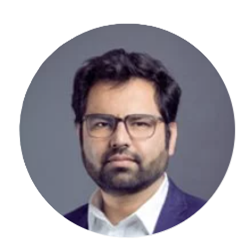
Hamid Ibrahimi
Explosive Ordnance Risk Education (EORE) Advisor
The Geneva International Centre for Humanitarian Demining (GICHD)
Mr. Hamid Ibrahimi joined the Geneva International Centre for Humanitarian Demining (GICHD) in January 2023 and works as an Explosive Ordnance Risk Education (EORE) Advisor. In this role, he provides technical support on EORE to national mine action authorities and other partner organizations across regions. This includes conducting assessments, developing and delivering EORE training courses to strengthen competencies of EORE practitioners, and exploring innovative solutions to challenges in the sector.
Before joining the GICHD, Hamid led the EORE Department at the Afghanistan Directorate of Mine Action (DMAC) for over six years. He brings more than 20 years of experience in the humanitarian sector and holds a Master’s degree in Business Administration.

Maria Carolina Romero
Early Stage Investing Expert
Maria Carolina is an active angel investor since 2012 with a portfolio of startups across Europe, MENA, and LATAM. She is also a trainer, coach, and mentor, focused on building investor communities and sustainable entrepreneurial ecosystems worldwide. She has co-designed and led investor readiness programs in Pakistan, the Western Balkans, UAE, and Peru, supporting over 100 founders to secure investment. Maria-Carolina has also strengthened angel networks and trained BAN managers in Lebanon, Jordan, Palestine, the Balkans, Tanzania, Senegal, and Egypt. Currently, she serves on the Selection Committee of the Katapult Accelerator for Serbia’s Innovation Fund, the Expert Committee of Montenegro’s Innovation Fund, and consults on innovation and entrepreneurship for the World Bank Group. Previously, she led portfolio products at Go Beyond Investing and LUMNI, an award-winning human capital investment fund in Latin America. She holds an MSc in Government and International Affairs and an MBA from École Polytechnique Fédérale de Lausanne (EPFL).
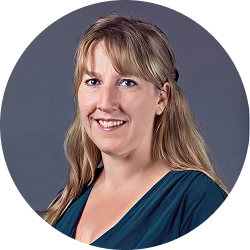
Abigail Jones
Programme Manager of the Gender, Diversity, Equality and Inclusion
The Geneva International Centre for Humanitarian Demining
Abigail Jones joined the GICHD in March 2019 as an Advisor on Gender and Diversity. She currently works as the Programme Manager of the Gender, Diversity, Equality and Inclusion (GDEI) programme. In this capacity Abigail coordinates the activities of the GDEI team to ensure that gender and diversity are mainstreamed and equality and inclusion promoted in explosive ordnance risk reduction responses. As a member of the Inclusive Risk Reduction (IRR) division, Abigail collaborates with other divisions within the GICHD to ensure that gender and diversity are mainstreamed in all thematic areas, including strategies, operations, standards, EORE, information management, and ammunition management.
Prior to joining the GICHD, Abigail worked as an Advisor for the Gender and Mine Action Programme (GMAP), an independent organisation building capacity on gender and diversity in the mine action sector. She had a brief hiatus from mine action, during which she retrained as a teacher through the Teach First programme that seeks to address education inequality in the UK. Prior to that, Abigail Jones worked with Danish Refugee Council’s specialist mine action unit the Danish Demining Group as the Global Risk Education Technical Adviser, traveling extensively to all countries in which DDG operated and providing technical advice on risk education related to mines, ERW, small arms, and IEDs, as well as on non-technical survey. She previously worked for the Mines Advisory Group as a Community Liaison Manager in the Democratic Republic of Congo.
Abigail Jones holds a BA in International Relations from the University of Birmingham, an MSc in Development Studies from the School of Oriental and African Studies, and is also a qualified teacher recognised by the UK Department of Education.
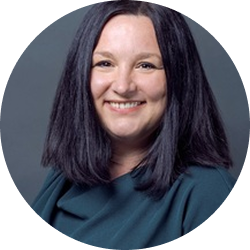
Anna Luczkiewicz
Training Design and Development Specialist
The Geneva International Centre for Humanitarian Demining
Anna Luczkiewicz joined GICHD in December 2021. As Training Design and Development Specialist she is responsible for leading the development of the Learning Unit, standardizing the approach to the design and delivery of external training courses, and manage the GICHD-wide Learning Management System (LMS).
Prior to joining the GICHD, Anna worked in the Training department of the International Air Transport Association (IATA) in Geneva holding the position of Manager, Training Quality and Standards. Her main focus was related to applying the ISO 9001:2015 principles in the global training team, implementing training standards, and managing the onboarding programs for the facilitators. Anna worked previously as a trainer in Grupa 24 for communication-related courses.
Anna holds a MA in Sociology and BA in Communication from the Jagiellonian University (Poland), IATA Professional Training Diploma (Switzerland), and a coaching certificate from the IDC Coaching Institute SA (Switzerland).
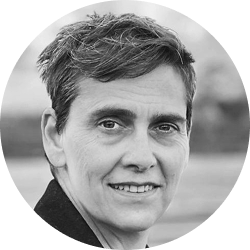
Mélanie Broquet
Head of Programme Information Management
MAG (Mines Advisory Group)
Mélanie Broquet is an experienced humanitarian professional with over twenty years of work in fragile and complex contexts. Over the course of her career, she has worked with several international NGOs, developing strong expertise in programme management, humanitarian mine action, and information management. She currently serves as Head of Programme Information Management at MAG (Mines Advisory Group).
Mélanie holds a Master’s degree in Public Health, a Master’s degree in Political Science, and is completing a PhD in Geomatics at the Information Management School of the University of Lisbon. This blend of professional and academic experience enables her to combine strategic vision with technical expertise, along with a strong commitment to quality, rigor, and accountability in humanitarian action.
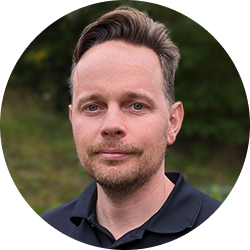
Michael Nevard
Director of Transformation, the HALO Trust
Michael joined The HALO Trust in 2007 and has worked in a variety of roles around the world. He leads HALO’s HQ team driving safety, efficiency, and effectiveness across the organisation. This covers areas including operational innovation and development, training, research, medical, safety and standards, EOD, environment, logistics, and fleet.
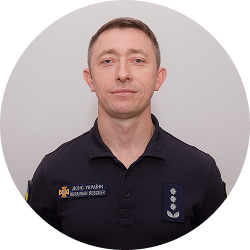
Mykola Didyk
Head of the Humanitarian Demining and Quality Control Division
The Mine Action Department at the State Emergency Service of Ukraine (SESU)
Mykola Didyk has worked in the humanitarian demining field since 2014 and is currently the Head of the Humanitarian Demining and Quality Control Division within the Mine Action Department at the State Emergency Service of Ukraine (SESU). In this role, he oversees the coordination and management of humanitarian demining operations, collaborating closely with the National Mine Action Authority, central government bodies, and international organizations.
Previously, Mykola served as the First Deputy Head of the SESU Rescue Center in Chernivtsi and held several positions in the SESU's Emergency Response Section. From 2015 to 2017, he coordinated SESU demining units in the Donetsk and Luhansk regions, where he managed demining tasks for vital infrastructure repairs and worked with local and military administrations.
Mykola has also led demining operations at military stockpiles, including high-scale fire and explosion sites in Lozova (Kharkiv region) in 2011-2012 and near Novobohdanivka (Zaporizhzhia region) in 2007-2008.
He holds degrees from the Military Engineering Institute of Podilsky State Agricultural and Technical University (2005) and the National Academy for Public Administration (2019).
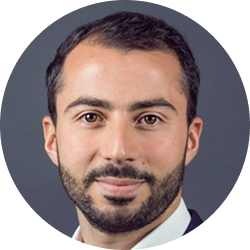
Boris Ohanyan
Programme Officer, Research and Innovation
The Geneva International Centre for Humanitarian Demining
Boris Ohanyan has worked at GICHD since 2021. Currently, he is part of the Research and Innovation team, where he leads the coordination of the Innovation Conference and supports initiatives related to research and innovation, as well as methods to improve the delivery of Explosive Ordnance Risk Reduction (EORR) activities.
Previously, Boris worked in the External Relations, Policy and Cooperation Programme, contributing to GICHD's efforts on EORR integration, the SDGs, and policy initiatives related to International Humanitarian Law, Disarmament, and Human Rights. He also supported GICHD's engagement in key conventions (APMBC, CCM, CCW).
Before GICHD, Boris worked at Armenia’s Ministry of Justice, as a lawyer, and in various NGOs and international organizations.
Boris holds an MA in International Law from the Graduate Institute Geneva (IHEID) and a MAS in European and International Governance from the University of Geneva.
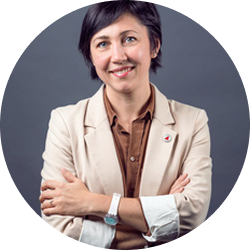
Olena Kryvova
Ukraine Country Programme Manager.
The Geneva International Centre for Humanitarian Demining
Olena Kryvova joined the GICHD in August 2022 and holds the position of Ukraine Country Programme Manager. In this role, she is responsible for designing, coordinating and managing comprehensive country programme interventions GICHDs Country Programme in Ukraine. She develops partnerships with donor governments, national authorities and relevant international and regional organisations. Moreover, she acts as advisor to national authorities on constant improvement of policies, operations and donor coordination.
Prior to joining the GICHD, Olena was a Deputy Country Director for Swiss Foundation for Mine Action in Ukraine. She worked in mine action with INGOs in Ukraine and Iraq at various managerial positions since 2015. Fieldwork has taken her to Asia, Europe and the Middle East.
In her pre-mine action life, Olena worked in Education sector in Ukraine as a language teacher, a quality assessor and a counterpart for the US Peace Corps project.
Olena has MA in Education, English language and Psychology from Donbass State University, Ukraine.
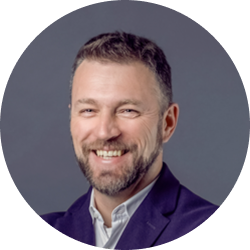
Pedro Basto
Programme Manager, Research and Innovation
The Geneva International Centre for Humanitarian Demining
Pedro Basto joined the GICHD in May 2023 and holds the position of Programme Manager, Research and Innovation. In this role, he provides direction to the Research and Innovation Programme, and the rest of the GICHD, focusing on leading and coordinating research and innovation related initiatives, and on methods that improve the delivery of Explosive Ordnance Risk Reduction (EORR) operations.
Prior to joining the GICHD, Pedro Basto worked in the Portuguese Armed Forces for 22 years, as Army Military Engineer, EOD and C-IED expert and in the European Defence Agency, as Project Manager for Capability Development and Research projects. His work has taken him to number of countries in Europe, Africa and the Middle East.
Pedro Basto has a Master’s degree in Military Engineering from the Portuguese Army Military Academy (chartered Civil Engineer) and he is currently doing a PhD on Blast Resistance dissipative systems in co-supervision between NOVA University from Lisbon and the Kingdom of Belgium Royal Military Academy.
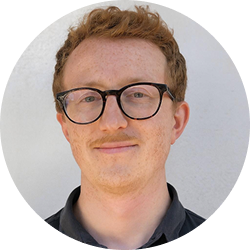
Paul Trautendorfer
Science-Policy Advisor
JPI Oceans
Paul Trautendorfer is a Science-Policy Advisor at the intergovernmental platform JPI Oceans, where he works on the topics of munitions in the sea and ocean observation. In this capacity, he is involved in the EU-funded MMinE-SwEEPER and CAMMera projects, which advance marine munition remediation and foster European collaboration on the topic. Within these two projects, Paul leads knowledge transfer, communication, and policy activities, and oversees the further development of the JPI Oceans Knowledge Portal “Munitions in the Sea.” Through this work, he coordinates a group of nine research projects in the field with regard to outreach efforts, which provide the scientific basis and expertise to support the European Union’s flagship action to develop Europe-wide UXO Removal Strategies.
He holds a joint Master’s degree in Global Studies from Leipzig University and Ghent University, with a focus on ocean governance and maritime security.
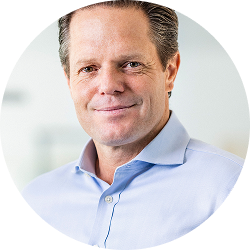
Philipp von Michaelis
Co-Founder and CEO
Global Clearance Solutions (GCS)
Philipp von Michaelis is the Co-Founder and CEO of Global Clearance Solutions (GCS), a company dedicated to developing sustainable business models in developing and conflict-stricken regions. Before assuming his current role, he co-founded MineWolf Systems, a pioneer and leading company in mechanical landmine clearance technologies.
In 2015, he co-founded GCS to shape a new generation of explosive threat mitigation by combining cutting-edge technology, expert services, and local capacity building to reduce the long-term consequences of armed conflict.
Born and raised in Germany, educated and trained around the world, he enjoys spending time with his family while finding his balance doing outdoor sports in the Swiss mountains.
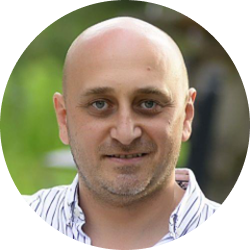
Wassim Ammane
CPP Programme Coordinator
Norwegian People’s Aid
Wassim is a specialist in Conflict Preparedness and Protection (CPP) and Information Management with more than nine years of experience. Since 2016, he has worked on CPP projects across multiple countries and served as Information Management Coordinator for the CPP Programme at Norwegian People’s Aid. His work centers on developing evidence-based systems to monitor global conflicts, integrating open-source data and artificial intelligence to strengthen analysis and inform decision-making.
He holds a Bachelor’s degree in Informatics Engineering from Aleppo University, Syria.
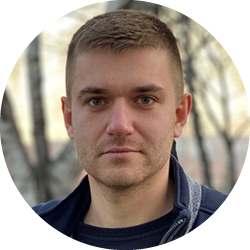
Miodrag Milenković
Senior Advisor for Training Organization and Mine Action Coordination
Mine Action Centre of the Republic of Serbia
Miodrag Milenković is the Senior Advisor for Training Organization and Mine Action Coordination at the Mine Action Centre of the Republic of Serbia. He holds a Master’s degree in Economics with a specialization in Finance, Banking and Insurance. Since joining the Centre in 2020, he has been actively engaged in all aspects of Mine Action, including project development, quality control, and training. He is part of the SMAC team of instructors delivering education on the dangers of explosive remnants of war. Miodrag holds EOD Level 1 and Level 2 qualifications and has completed numerous domestic and international trainings in Mine Action.
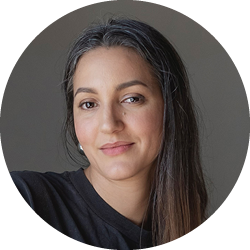
Karina Rios Michel
Chief Creative and Technology Officer
Girl Effect
Karina Rios Michel is a creative technologist and social impact leader with over a decade of experience designing and scaling digital health and behavior change solutions for young people. Her work focuses on transforming harmful social norms through human-centered design, social and behavior change communication, and the responsible application of emerging technologies including generative AI and chat-based platforms.
As Chief Creative and Technology Officer at Girl Effect, Karina has led pioneering initiatives that blend storytelling, AI, and youth co-creation to reach millions across Africa and Asia with sexual and reproductive health, mental wellbeing, and life skills support. Her work sits at the intersection of culture, innovation, and equity—reimagining how technology can support real social change.

Kateryna Drozd
Lead for Innovations
The Mine Action Office under the Ministry of Economy, Environment and Agriculture of Ukraine
Kateryna Drozd is the Lead for Innovations at the Mine Action Office under the Ministry of Economy, Environment and Agriculture of Ukraine, where she shapes the strategic vision for advancing innovation within the national mine action sector. She has extensive experience in managing acceleration programs and complex innovation projects across defense tech, mine action, and IT domains. Her work focuses on integrating emerging technologies—such as AI, robotics, and advanced sensing systems —into mine action operations, and building cross-sector collaboration between government, private industry, and international partners. Kateryna also coordinates pilot testing and standardization of demining technologies in Ukraine and regularly represents the Innovation Sector at national and international forums to promote technology-driven solutions for humanitarian demining.
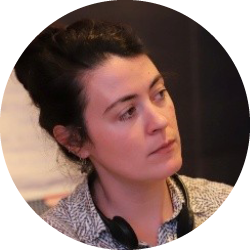
Marie Grené
Chair of the Conflict Preparedness and Protection (CPP) Sub-Task Team of the EORE Advisory Group
Marie Grené is chairing the Conflict Preparedness and Protection (CPP) Sub-Task Team under the EORE Advisory Group. Specialized in EORE, CPP, victim assistance, and social and behaviour change, she is currently working on a research on proactive protection measures in conflict settings, with the Consortium for Civilian Safety and Security, mandated by NORCAP, NOHA, and ODI. She holds degrees in International Affairs & Peace Studies and in Public Health & Behaviour Change. Her experience includes operational roles in humanitarian mine action as well as technical consultant, mainly across the MENA region, Southeast Asia, and Ukraine.
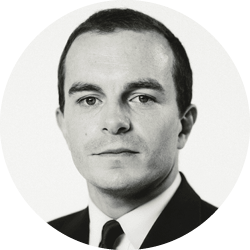
Matt Abercrombie
Head of Research and Development
The HALO Trust
Matt Abercrombie is Head of Research and Development at The HALO Trust, where he leads the delivery of HALO’s global technology strategy. Matt joined HALO in 2018 and managed survey and clearance operations in Ukraine, Somaliland, and Iraq before transitioning to R&D in 2022. Matt now oversees the development and deployment of cutting-edge technology, equipment and procedures to improve safety and efficiency across HALO’s operations. He holds a master’s degree in statistics from the University of Bristol.
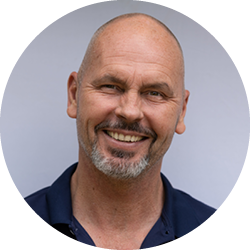
Mikael Bold
Program Manager, Mine Detection and Technical Survey Dog Operations
APOPO
Mikael Bold is the Program Manager for APOPO’s Mine Detection and Technical Survey Dog operations, supporting humanitarian and commercial mine action efforts globally. With over 20 years in the sector, he has held key roles with MAG, GICHD, NPA, the UN, and commercial operators. Mikael focuses on improving safety, quality, and efficiency in mine action through operational excellence, informed decision-making using GIS, and a strong commitment to continuous improvement.
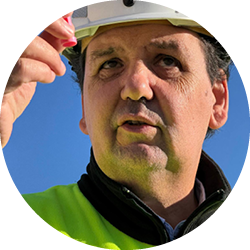
Pedro Bernardo
Chairman of ORICA Mining Services Portugal
Invited Professor at University of Lisbon
Pedro Bernardo is a Mining Engineer (BSc, 1992), with an MSc in Mine Ventilation (1995) and a PhD in Rock Mass Vibrations from Blasting (2004). He is a Senior Mining Engineer (Portuguese Engineering Association, 2005) and a Geotechnics Specialist (since 2007).
Pedro has been with ORICA Portugal since 2006, currently serving as Chairman of the Board. He is responsible for the Technical and Commercial Departments in Portugal and is the Legal Responsible for ORICA’s explosives plant in Aljustrel, producing approximately 15,000 tons of civil explosives annually.
Pedro began his career in South African gold mines and later joined the Technical University of Lisbon (now University of Lisbon), where he currently serves as Invited Assistant Professor (since 2006). He is a member of several professional societies, including SPA, SPG, ISRM, ITA, and AP3E (currently serving on the Board of Directors, since 2007).
Pedro has authored and co-authored over 30 papers in Mining Engineering technical events and has been a certified blaster for civil explosives in Portugal since 2000.
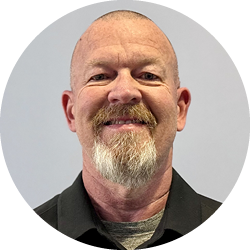
Todd Biggs
Vice President
Tetra Tech, Inc
Todd is s retired U.S. Navy Explosive Ordnance Disposal (EOD) and Diving Officer. He has been a diver and EOD Technician since 1988. Currently, Todd is a Vice President at Tetra Tech, Inc., managing the U.S. Department of State's Conventional Weapons Destruction contract. Todd is an active diver and coordinates munitions/ERW work around the world. He has been involved in underwater clearance, both in the Navy and on the commercial side of the business.
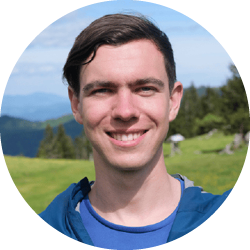
Ivan Dudiak
Executive Director
Sokil
Ivan is the founder and executive director of Sokil, the company providing end-to-end systems for humanitarian demining. Being Ukrainian from Kherson, he feels strongly about the landmine contamination issue in his home. Ivan leads a vision that drones in humanitarian demining will only be useful when they are as easy-to-use and as cost-effective as possible.
.
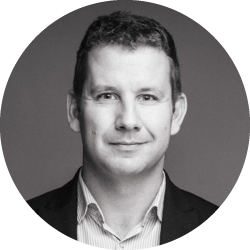
Stephen Ingram
Global Technical Advisor (HMA)
Mines Advisory Group (MAG)
Stephen Ingram is a former British Army Ammunition Technical Officer and he has worked with both the HALO Trust and the Mines Advisory Group (MAG) in programmes, leading operations and providing technical oversight across Africa, the Middle East, Europe, and Southeast Asia. Since 2023, he has served as MAG’s Global Technical Advisor (HMA), providing senior technical; leadership across MAGs 35 country programmes. In this role, he is responsible for global technical compliance, operational safety, and the leads the MAG technical experts in the development of standards, training, medical and mechanical capabilities. He also represents MAG on IMAS Review Boards, drives research and development initiatives, and leads the harmonisation of global standard operating procedures.
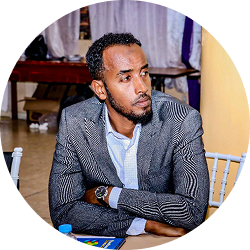
Abdulkadir Ibrahim Mohamed
Head of Information Management
The Somali Explosive Management Authority (SEMA)
Abdulkadir Ibrahim Mohamed currently serves as the Head of Information Management at the Somali Explosive Management Authority (SEMA), Ministry of Internal Security, where he joined in 2015. He leads the migration to IMSMA Core and the development of national information management standards, enhancing data-driven decision-making in Somalia’s mine action sector.
He began his career with the Somali Humanitarian Demining Organization (SOHDO) from 2012 to 2015 as a Mine Risk Education (MRE) Team Leader, delivering community awareness programs and coordinating with partners to mitigate explosive hazards.
He holds a Master of Business Administration (MBA) from MAHSA University (Malaysia), complemented by professional training in data analytics, GIS, and information management systems for mine action.
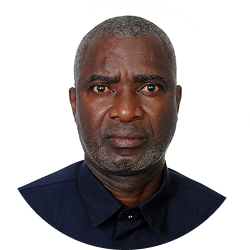
Edgar dos Santos Lourenço
Technical Advisor
Angolan Mine Action Authority
Edgar dos Santos Lourenço is a Technical Advisor at the Angolan Mine Action Authority (ANAM), supporting technical aspects of the National Mine Action Programme. Holding a degree in Mathematics and Physics from Goa University, India, he has been involved in mine action since 1995. Edgar began his career as a Demining Supervisor with Norwegian People’s Aid, followed by roles supporting national coordination of Explosive Ordnance Risk Education with World Vision and assisting UNDP projects on mine victim assistance. He later held senior positions within the Angolan Mine Action Authority, including National Program Coordinator and Head of the National Explosive Ordnance Risk Education Department.
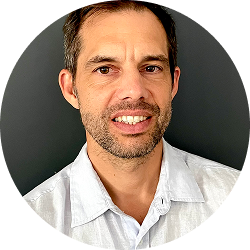
Cédric Tisserand
EOD/IEDD Regional Operations Management Advisor
HAMAP-Humanitaire
Cédric Tisserand is an EOD/IEDD Regional Operations Management Advisor at HAMAP, a French humanitarian NGO specializing in mine action, including underwater clearance, and water and sanitation. In this role, he supports planning, implementation, and oversight of explosive ordnance disposal (EOD) operations in Iraq and Lebanon, while mentoring and training operational managers and team leaders to enhance the safety and effectiveness of clearance activities.
Cédric Tisserand has over 25 years of experience in EOD, IEDD, and bomb disposal operations, including deployments in Syria, Somalia, Libya, Mali, Niger, Burkina Faso, and France. He previously served as a Bomb Disposal Diver and EOD specialist with the French Marine Nationale and has extensive experience in mentoring, training, and developing standard operating procedures for high-risk operations. He holds professional qualifications in commercial diving, bomb disposal diving, and improvised explosive device defeat techniques.
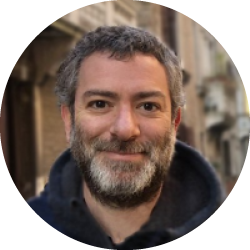
Marcello Machì
Independent consultant and MEAL specialist
Marcello Machì is an independent consultant and MEAL specialist with a background in Cultural Anthropology and Information Management, and holds a master’s degree in Communication Science. He focused in the design of monitoring frameworks, accountability mechanisms, and cross-project learning agendas within humanitarian settings. Having worked with several international aid organizations, his field experience spans the Middle East, Central Africa, and Europe. Drawing on a previous background in web applications' development, his MEAL expertise and his enthusiasm for innovations, he is currently leading the design and development of a Conflict Preparedness and Protection OSINT project.
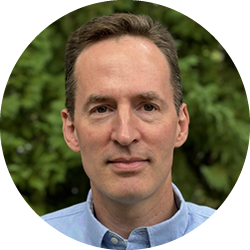
Mike Zimmer
Lead Scientist
Minesight
Dr. Mike Zimmer is a geophysicist with over 20 years of sensor development experience, including work with GPR, magnetometer, and acoustic sensor systems for subsurface detection and positioning. Dr. Zimmer currently acts as a Lead Scientist for Minesight, tasked with facilitating development and transition of new technologies into use for humanitarian demining.
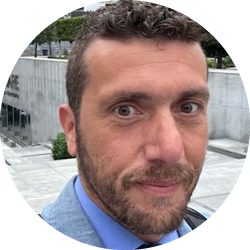
Dr. Simone Santoro
Research Physicist
ENEA- Nuclear Department
Dr. Simone Santoro is a Research Physicist at ENEA’s Research Center in Rome, where he leads the scientific activities for the EDA CapTech project STYX on stand-off detection of hybrid threats containing explosives. His expertise spans laser-based remote sensing, Raman spectroscopy, and the development of advanced LIDAR prototypes for chemical and explosive detection. With a strong background in nuclear and applied physics, he has contributed to several NATO research initiatives, including EXTRAS, HADES, and INSTEAD, focused on early threat detection using quantum and optical sensors. Dr. Santoro has extensive experience in software and FPGA development for spectroscopic systems and has authored numerous scientific publications on spectroscopy, quantum optics and environmental monitoring. His current research integrates machine learning and photonic technologies to advance next-generation sensing systems for security and defense applications.
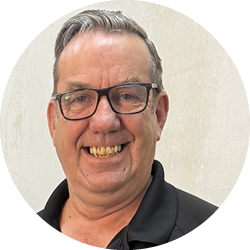
Peter Smethers
Country Director Iraq, Fondation Suisse de déminage (FSD)
Peter Smethers is an experienced leader in humanitarian mine action and explosives safety, with almost 40 years of combined military and humanitarian experience. As Country Director for the Fondation suisse de déminage (FSD) in Iraq, he has managed multimillion-dollar (currently in excess of $45 million in total) clearance and risk reduction projects, leading a diverse team of over 160 staff to deliver safe and efficient mine action operations across conflict-affected regions for the last 7.5 years.
A former Warrant Officer in the British Army, Peter’s expertise spans munitions management, counter-IED operations, and explosive safety in complex environments including Northern Ireland, Bosnia, Libya, Afghanistan and Iraq. He is a Member of the Institute of Explosive Engineers (MIExpE) and the International Association of Bomb Technicians and Investigators (MIABTI), recognized for his professionalism, operational discipline, and dedication to advancing safe and accountable humanitarian mine action.
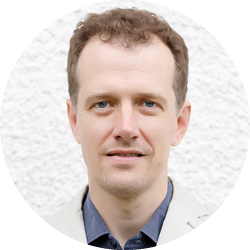
Nicolas Florquin
Head of Data and Analytics and Senior Researcher
Small Arms Survey
Nicolas Florquin is the Head of Data and Analytics and Senior Researcher at the Small Arms Survey.
Nicolas oversees the Survey’s global data and analytics, managing research projects on armed actors and the illicit flows of arms and ammunition, with a recent focus on Africa, the Caribbean, Ukraine, and Europe. He promotes the use of innovative mixed methods to enhance understanding of illicit weapons flows and emerging firearms-related threats, including new technological developments.
Previously, Nicolas worked with Geneva Call, an organization focused on engaging non-state armed groups on humanitarian issues, and with the United Nations Panel of Experts on Liberia.
He holds a Master’s in Public Administration from the Middlebury Institute of International Studies at Monterey and a PhD from the University of Brighton.
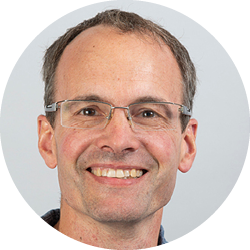
Yves Acremann
Senior Scientist, ETH Zurich
Yves Acremann is a Senior Scientist and Lecturer at the Physics Department of ETH Zurich, Switzerland. He specializes in Solid State Physics, focusing on studying magnetism and charge dynamics on the pico- and femtosecond timescale. This research is conducted using X-ray and electron microscopy, as well as photoelectron spectroscopy. Prior to his current position at ETH, he was a Staff Scientist at the SLAC National Accelerator Laboratory in Stanford, the United States.
In the context of mine action, he is currently working on the development of a metal detector based on magnetic induction spectroscopy at very low frequencies. This technique is combined with fluxgate magnetometers for enhanced sensitivity. The primary goal of this project is to detect larger metal parts (for example, UXO) in the presence of small metal fragments in the ground.
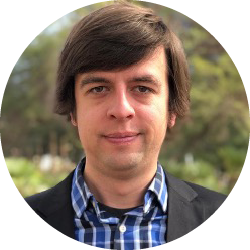
Andy Haefner
CEO and Co-Founder, Gamma Reality Inc. (GRI)
Dr. Andy Haefner is the CEO and Co-Founder of Gamma Reality Inc. (GRI). He is an expert in imaging, sensor data fusion, and algorithm development, with over a decade of experience leading innovative research and development in advanced 3D radiation mapping, data fusion, and visualization technologies.
Inspired by his experiences deploying 3D radiation mapping prototype systems at measurement campaigns around the world, he co-founded GRI to commercialize next-generation 3D mapping and data fusion technologies with real-world impact.
Dr. Haefner holds a PhD in Nuclear Engineering from the University of California, Berkeley.
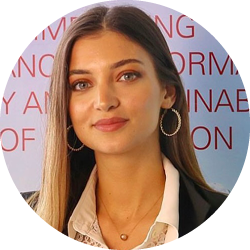
Kinda Samra
Project Coordinator, Research and Innovation
The Geneva International Centre for Humanitarian Demining
Kinda Samra is the Project Coordinator with the Research and Innovation team at the Geneva International Centre for Humanitarian Demining (GICHD). She coordinates innovation projects and supports research initiatives that enhance the effectiveness of Explosive Ordnance Risk Reduction (EORR) operations.
Before taking on her current role, Kinda worked as a Programme Officer at the GICHD, contributing to projects related to liability and residual contamination management within the humanitarian mine action sector. She also has experience working with organizations focused on peacebuilding and media.
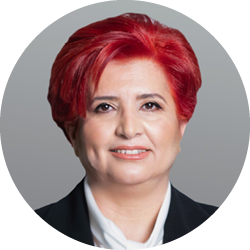
Habbouba Aoun
Director of the Souk El Gharb Campus and of the Community Engagement Department
Faculty of Health Sciences, University of Balamand
Habbouba Aoun holds a Doctorate in Public Health and Development, a Master of Science in Population Studies, and a Bachelor of Science in Environmental Health. She has also completed advanced courses in epidemiology, leadership, and emergency preparedness in humanitarian settings.
With over twenty-five years of experience in planning, implementing, and evaluating community projects that bridge public health and development, she has worked extensively on needs-based, participatory, and rights-based approaches. Ms. Aoun contributed to the development of school health programmes in Lebanon and other Arab countries, and has played an active role in establishing mine action centres, strategies, standards, and curricula across the region.
Her work spans a wide range of public health and social issues, including gender and disability, women’s economic empowerment, child labour, adult learning, and education in emergencies. She has also been involved in humanitarian responses to major crises in the Arab region, including the Syrian conflict, COVID-19, and cholera outbreaks, with a focus on risk communication, community engagement, and health promotion.
Ms. Aoun currently serves as Director of the Souk El Gharb Campus and of the Community Engagement Department at the Faculty of Health Sciences, University of Balamand. She is also Secretary General of the Al Farah Social Foundation and Vice President of the Union of Progressive Women.
She was named Woman of Courage by the U.S. Embassy in Lebanon in 2009 and Woman of the Year 2022 by Google, where she received top recognition in the media and politics category.
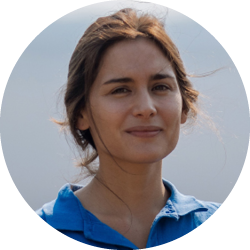
Tiphaine Lucas
Head of Mine Action and Land Rehabilitation, the Food and Agriculture Organization (FAO)
Tiphaine Lucas is Head of Mine Action and Land Rehabilitation at the Food and Agriculture Organization (FAO), based in Ukraine. She previously served with FAO in Georgia and the Balkans, and earlier as Analyst for the French Ministry of Defense and Technical Cooperation Attaché for the French Ministry of Foreign Affairs. An agronomist with a Master’s degree in East European Studies from Sciences Po and a Higher National Diploma in Agronomy, she specializes in linking mine action, soil science, and agricultural recovery.
Exhibitors
Explore the technologies and innovative projects that will be showcased at the conference. Check back often for updates as we regularly add new exhibitors!
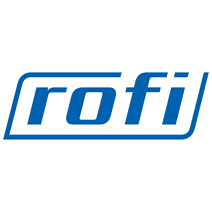
ROFI

Composites Solutions AG

Catholic Relief Services (CRS) in Vietnam

Snail Aid - Technology for Development in collaboration with the Italian Institute of Technology

FindMine gGmbH
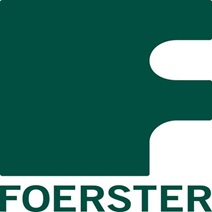
Institut Dr. Foerster GmbH & Co. KG
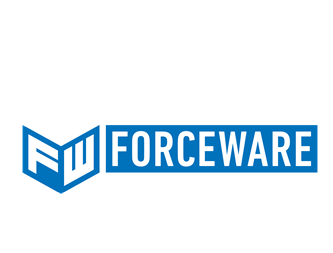
Force Ware GmbH
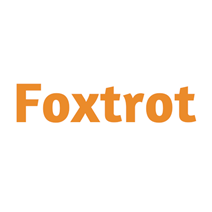
Foxtrot Inc.

GARANT Schutztechnik GmbH

Project: Mine Action Assistant
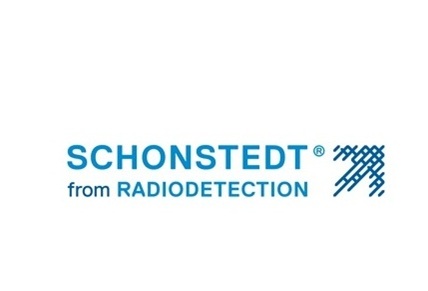
Schonstedt
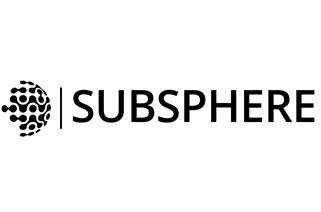
Subsphere Corporation

DOK-ING
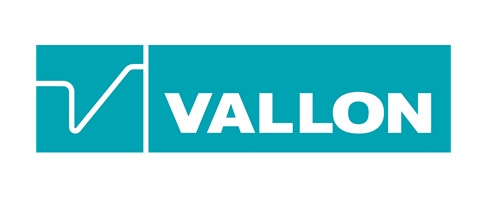
Vallon GmbH

Global Clearance Solutions AG
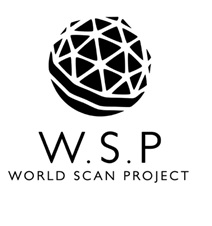
World Scan Project Co., Ltd.
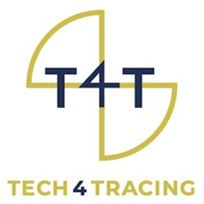
Tech 4 Tracing
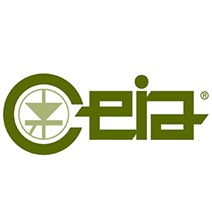
CEIA S.p.A.
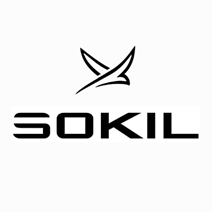
SOKIL
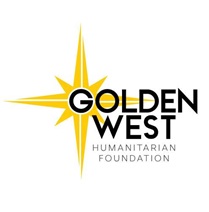
Golden West Humanitarian Foundation

WESCUE

FAE S.p.A.
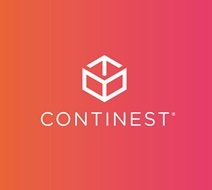
CONTINEST
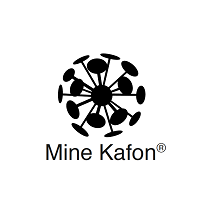
Mine Kafon Lab
EODynamics
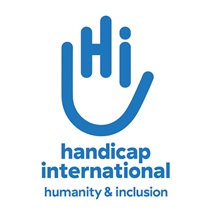
Humanity & Inclusion
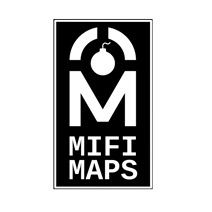
MiFi Maps
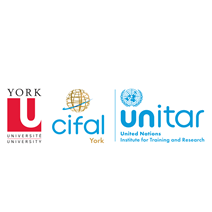
CIFAL York -ADERSIM, York University
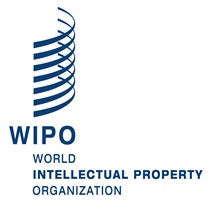
The World Intellectual Property Organization

Wingtra AG
SHEILD
Conference Location
Innovation Conference Information
10, Circuit de la Foire Internationale
L-1347 Luxembourg-Kirchberg
Accommodation
Press Kit and Media Contacts
Press Kit and Media Contacts
Members of the press are invited to attend the conference for interviews and photo opportunities.
Journalists are requested to register by sending an email to Tamara Kloos at t.kloos@gichd.org
For questions about the conference or interview requests please contact:
Laura Collier, Communications Manager, l.collier@gichd.org
Donors

Federal Department of Foreign Affairs (FDFA) Switzerland
Luxembourg Aid & Development
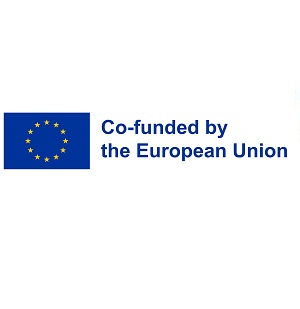
The European Union
Contact our conference team
For any queries, please contact the GICHD: innovation@gichd.org
For media queries, please contact: l.collier(at)gichd.org
Previous Innovation conferences
Browse our previous conferences which have sparked collaboration of experts from all over with our last event welcoming over 300 participants from more than 200 organisations operating in over 60 countries and territories.


